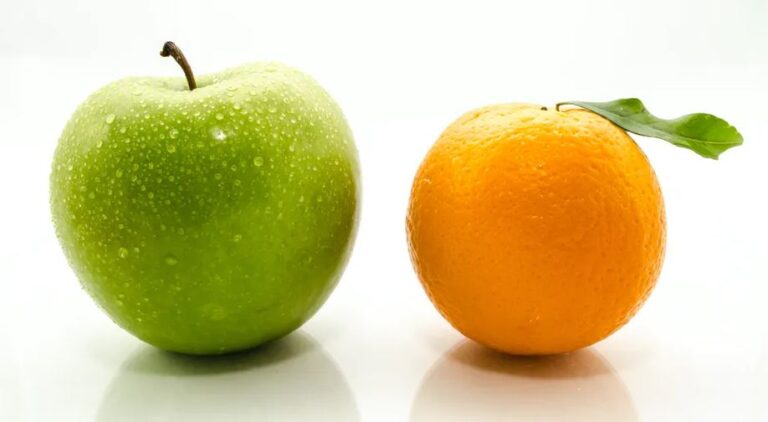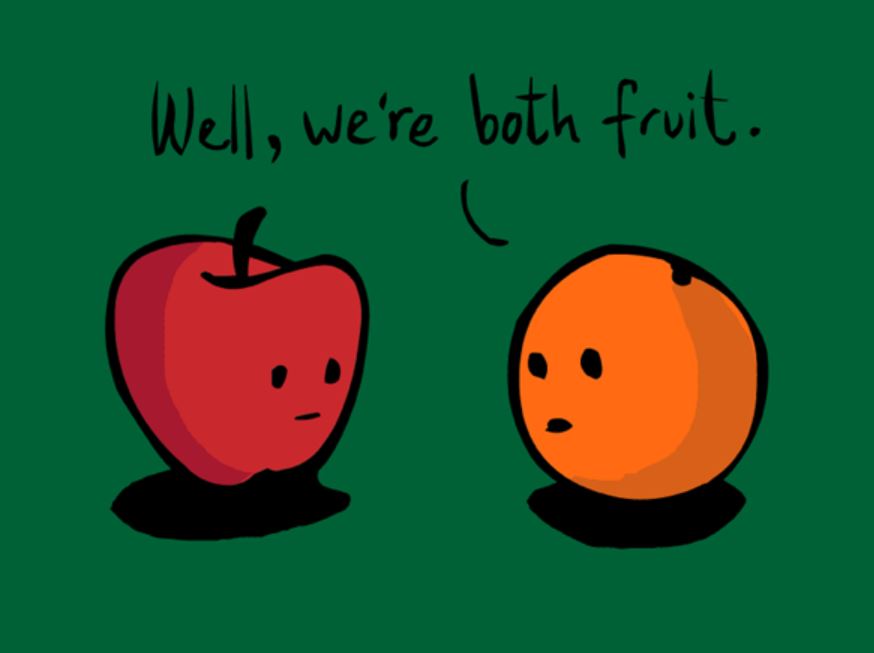
In the English language, we often compare apples to oranges to illustrate we are comparing two different things to each other and how those differences cannot be compared equally. But are apples and oranges really so different? Why do we use these two fruits to underline differences?
Apple and Oranges are More Similar than Different

Apples and oranges have quite a bit in common. They both weigh about the same; they both provide us with Vitamin C; they both grow on trees; and they both provide similar amounts of fiber. So why do we use these fruits to show how two things are so different that they cannot be compared?
Similar Sayings Around the World
This idiom is not only found in the English language. There are very similar versions in other languages, as well. The French say they are comparing apples and pears, two fruits that are even more similar to each other than apples and oranges. People in Latin America compare potatoes to sweet potatoes.
Oysters before Oranges: The Origins

Shakespeare may have been the first to record what appears to be a familiar expression in his day when he penned in The Taming of the Shrew, “As much as an apple doth an oyster, and all one.” John Ray echoed that comparison in his 1670 book of proverbs, where he also spoke about comparing oysters to apples.
Between the late 1600s and the 1800s, oysters were dropped in favor of oranges in the comparison. While oysters and apples are decidedly different, oranges and apples are both tree-growing fruits. Perhaps the change happened as a way to highlight more subtle differences between two items being compared; or, perhaps, oranges were just more popular and more available than oysters, thus making them more relatable. Whatever the reason, the saying did not become common until the 1800s, and it became part of our everyday speech only in the second half of the 20th century.
The comparison of apples to oranges works because both fruits have obvious similarities (they are both round, they both grow on trees, and they are both fruits) but are strikingly different in taste, texture, and appearance. Oysters to apples was definitely a more striking comparison, but as it often happens, customs and preferences in different times and cultures often changes things in unexpected ways. Perhaps in another couple hundred years, the saying will have evolved even more!
References:
A Comparison of Apples and Oranges – Read a Free Compare and Contrast Essay at ExclusivePapers.com
Apples and oranges – Wikipedia
apples to oranges meaning, definition, examples, origin, synonyms (theidioms.com)